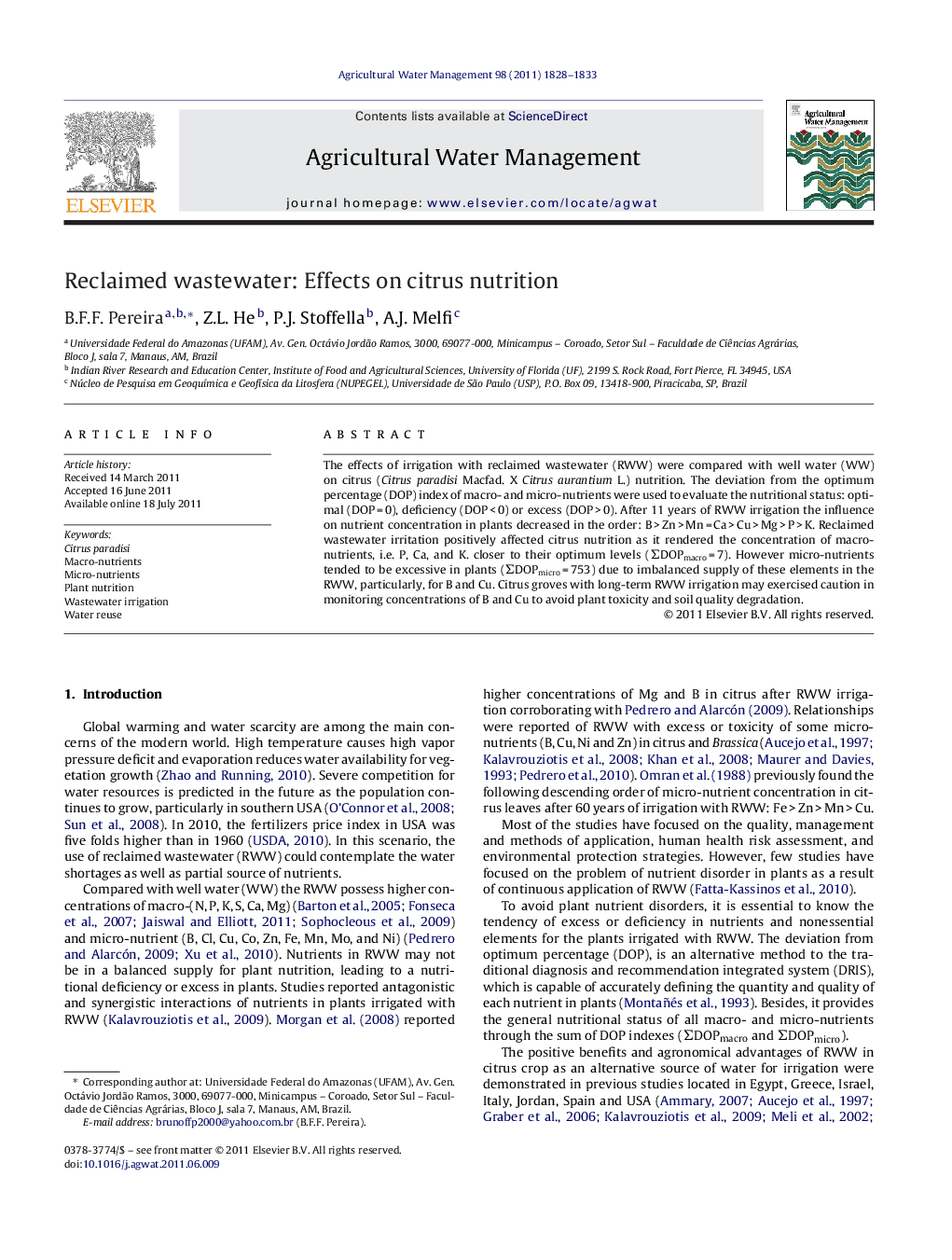| Article ID | Journal | Published Year | Pages | File Type |
|---|---|---|---|---|
| 4479312 | Agricultural Water Management | 2011 | 6 Pages |
The effects of irrigation with reclaimed wastewater (RWW) were compared with well water (WW) on citrus (Citrus paradisi Macfad. X Citrus aurantium L.) nutrition. The deviation from the optimum percentage (DOP) index of macro- and micro-nutrients were used to evaluate the nutritional status: optimal (DOP = 0), deficiency (DOP < 0) or excess (DOP > 0). After 11 years of RWW irrigation the influence on nutrient concentration in plants decreased in the order: B > Zn > Mn = Ca > Cu > Mg > P > K. Reclaimed wastewater irritation positively affected citrus nutrition as it rendered the concentration of macro-nutrients, i.e. P, Ca, and K. closer to their optimum levels (ΣDOPmacro = 7). However micro-nutrients tended to be excessive in plants (ΣDOPmicro = 753) due to imbalanced supply of these elements in the RWW, particularly, for B and Cu. Citrus groves with long-term RWW irrigation may exercised caution in monitoring concentrations of B and Cu to avoid plant toxicity and soil quality degradation.
• Wastewater affects nutrient in plants as follow: B > Zn > Mn = Ca > Cu > Mg > P > K. • Wastewater rendered macro-nutrients in plants closer to their optimum levels. • Imbalanced nutrients in wastewater cause micro-nutrients excess in plants. • Eleven years of irrigation with wastewater has no influence on fruit yield.
